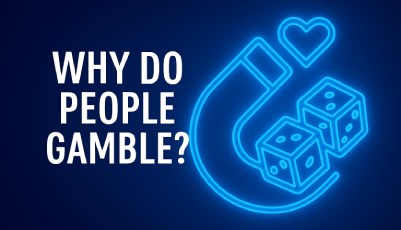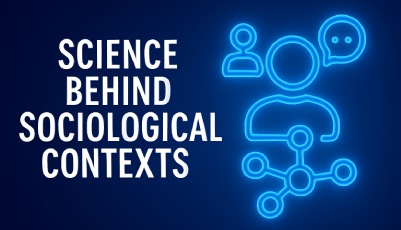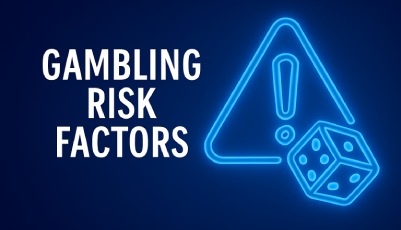Understanding the psychological mechanisms perpetuated by gambling is gaining knowledge into what drives our behaviors and gambling patterns. These forces, whether biological, emotional, or cognitive, explain why people gamble, and the reasons or factors that compel some to play to excess and have a higher vulnerability towards forming gambling disorders. These mechanisms are well founded in case studies, surveys, and longitudinal research that analyze the evolving habits and trends among gamblers.
To help prevent gambling disorders and create efficient treatment strategies, it is important to fully understand the process behind each of the individual mechanisms, and the intersections of where they can overlap or interact with each other. Studying the varying degrees to which these mechanisms impact a gambler, what the main triggers of the mechanism are, and how educated the individual is about the dangers of these phenomena is crucial to helping people find their own balance and avoid chasing losses or forming biases where risk taking is concerned.
Core Theories
Each person has their own interaction, level of exposure, and have their own preferences where gambling is concerned. The responses every person has to gamble is one and their own, but extensive research on the subject matter has shown that there are underlying patterns in these mechanisms, and they can be explained at emotional, neurobiological and psychological levels. Identifying the triggers and the user’s response requires a foundation in the core theories and studies behind the mechanisms.
The core theories below are among the most important in the sector, and they have been thoroughly researched. We know how these gambling behaviors can develop, how they can influence a gambler’s decision making, and the possible interactions with other triggers. There are also well documented longitudinal studies that have shown the potential roadmap of these habits, and how they can escalate and evolve over time.
Cognitive Distortions
Cognitive distortions are errors that can directly impact decision making. Biases are a typical example of such distortions, such as believing in hot streaks, or users giving too much weight to the illusion of control. However, some are founded in pure misunderstanding of how randomness or chance work, and are best described as counterintuitive interpretations of luck. For instance, the gambler’s fallacy has a mathematical basis, but it ignores the fact that the outcomes are random.
Loss-Chasing Psychology
The drive to win back losses is a common urge gamblers can face, and it is one of the most dangerous. This mechanism is closely linked to emotional regulation, as the losses trigger strong emotional responses. The notion that the player can win back the losses, combined with loss aversion in which they will not feel the same emotional response to a win as they do to a loss, creates a loop that can impact the player’s decision making.
Dopaminergic Reward Pathways
Emotional responses and behavior toward gambling is governed by a player’s dopamine levels. The brain’s dopaminergic system can alter during gambling sessions, releasing dopamine not just after wins, but also in the build up and anticipation of risk taking. This altered dopamine regulation, and the variable rewards before any gamble has been taken, can reinforce the player’s risk taking behaviors even if they don’t win.
Intermittent Reinforcement
Slot machines and fast paced online casino games use intermittent reinforcement that can trigger dopaminergic reponses in players. The unpredictability and variability in the wins and losses appeals to gamblers as it can perpetuate quick highs and lows, thus sustaining engagement and inducing persistent behaviors in gamers.
Emotion Regulation Models
Emotional regulation theories revolve around the use of gambling games as a coping mechanism. The dopaminergic highs produced by the gambles can be used to alleviate negative feelings such as stress, anxiety or negative moods. Cognitive Behavioral Therapy helps to find alternative means of emotional regulation strategies, rather than ones that can lead to unhealthy practices and worse problems.
Featured Articles
The articles below explore the main core theories in principle, from how they are developed in individuals, to their tell tale signs. We achieve this by reviewing key case studies on each core theory, and then summarize with a perspective that cross analyzes the highlights of each one.
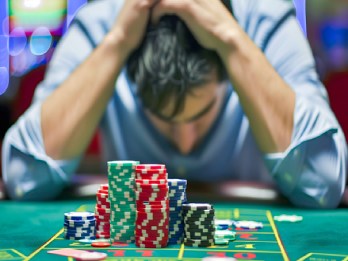
Cognitive Distortions and Gambling Fallacies
Over the years, researchers have found that gamblers who suffer from problem gambling often have cognitive distortions that affect their ability to make rational decisions when placing wagers.
Read More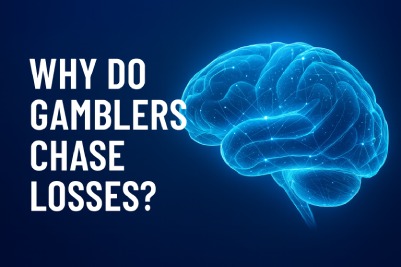
Why Gamblers Chase Losses
Chasing losses is a widely-studied aspect of gambling, as researchers, gamblers, and various stakeholders have always been curious about the motivations behind this behavior.
Read More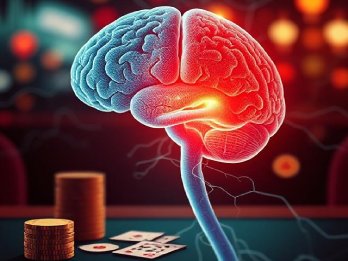
Neurobiology of Gambling Addiction
This guide seeks to explain what roles it plays in the human body, why it may contribute to gambling addiction, and case studies that have looked into this relationship.
Read More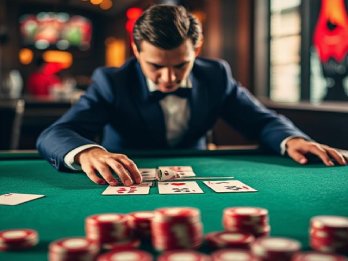
Motivation in Gambling Harm Progression
Can motivations influence gambling progression? This guide dives into the latest research, explaining how motivations present and their effects on gamblers.
Read More
Addiction by Design: Slot Machine Psychology
This guide looks into the principles covered in the book Addiction by Design by explaining how they work and how they could contribute to gambling addiction.
Read More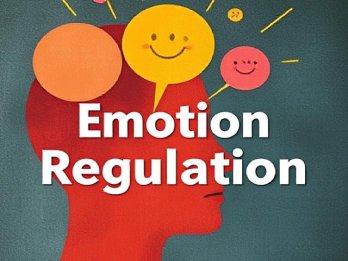
Emotion Regulation and Problem Gambling
Studies have linked problem gambling to issues with emotional regulation. This guide looks at the latest research in this regard and provides science-backed answers.
Read More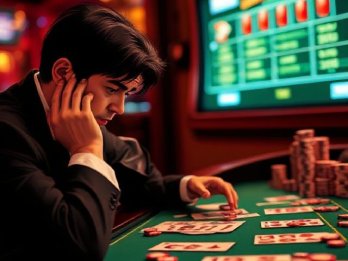
Personality Traits in Problem Gambling
Studies have often suggested that a person’s personality plays an important role in whether they will develop problem gambling behaviors.
Read MoreReferences
Gambling Severity Predicts Midbrain Response to Near-Miss Outcomes Henry W Chase et al. (2010)
Betting on Illusory Patterns: Probability Matching in Habitual Gamblers Wolfgang Gaissmaier et al. (2016)
